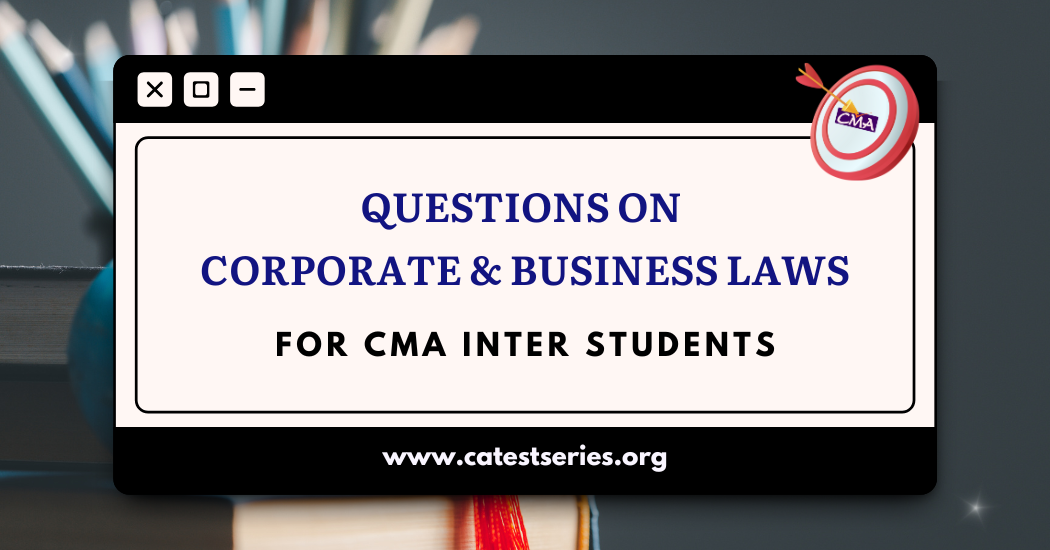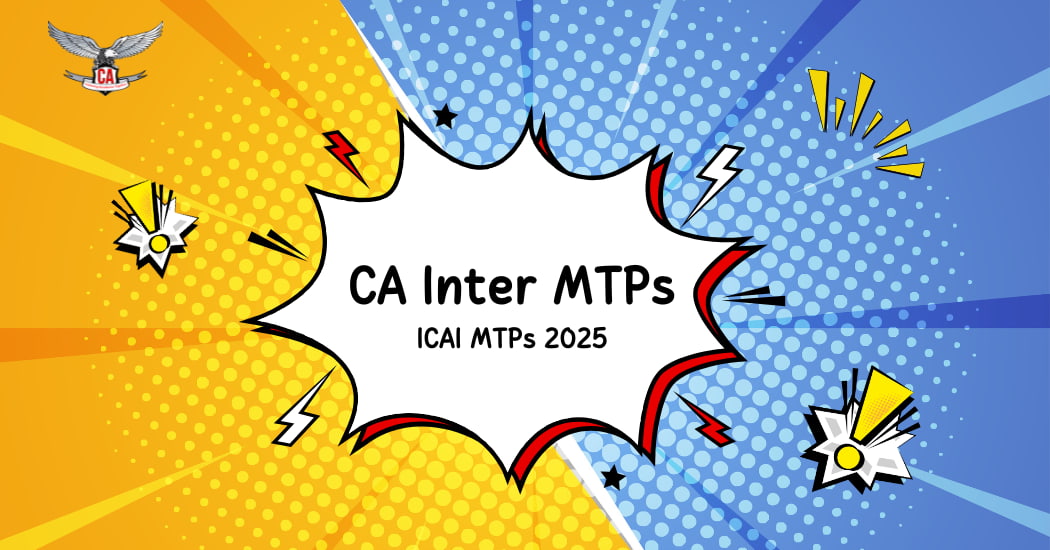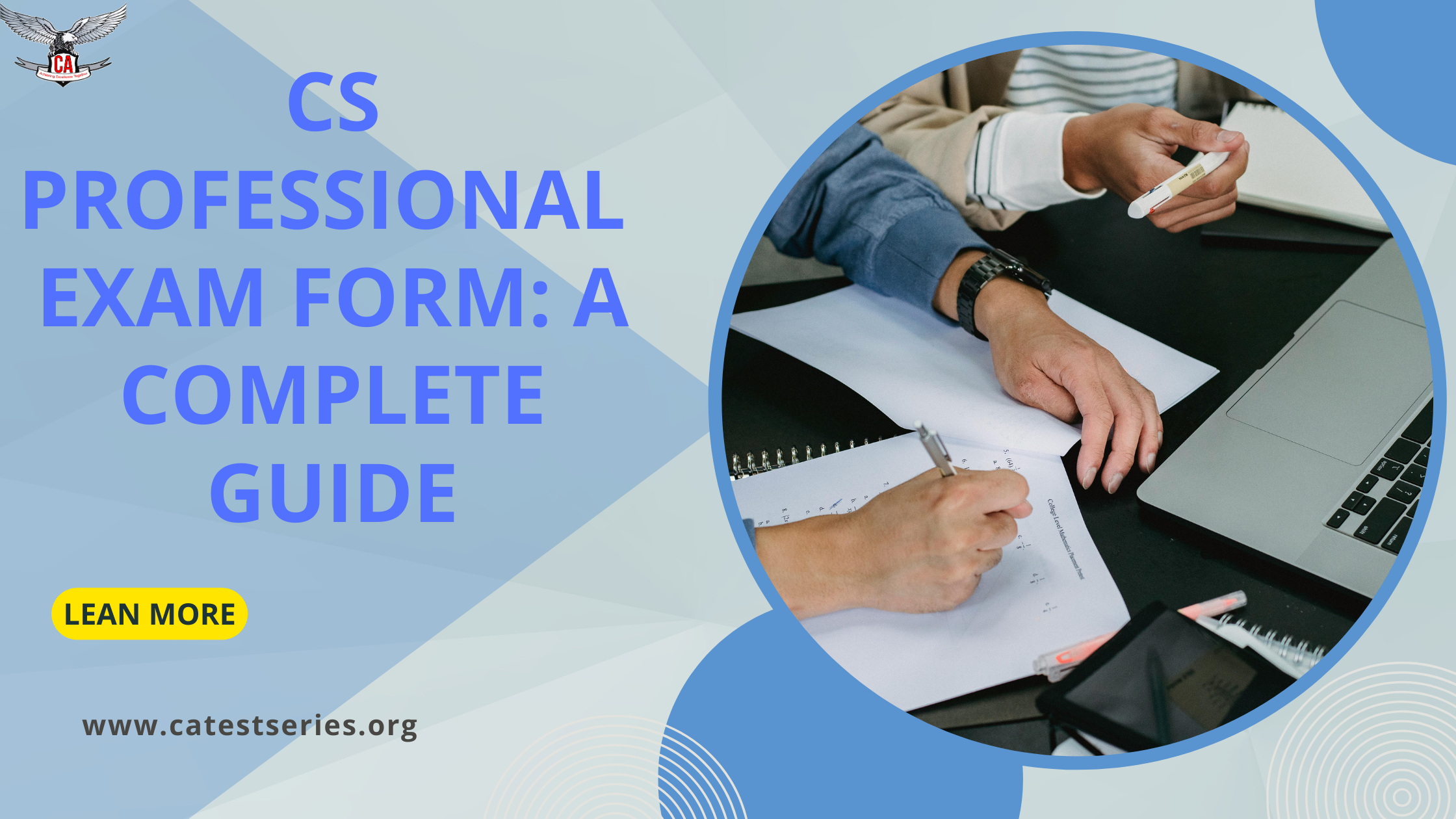CMA Inter Corporate and Business Laws Important Questions ICMAI 2025 Exams
Key questions on Corporate and Business Laws for CMA Inter students
- Company Law
a. Incorporation and Registration
- What are the steps involved in incorporating a company?
- Explain the concept of a Memorandum of Association.
- What is the role of the Registrar of Companies?
- What are the differences between public and private companies?
- Explain the process of conversion of a private company into a public company.
- What are the requirements for registration of a company?
- Explain the concept of a certificate of incorporation.
- What are the consequences of non-registration?
b. Share Capital and Debentures
- What are the types of share capital?
- Explain the concept of dividends and their types.
- What are debentures and their characteristics?
- How are shares and debentures issued?
- Explain the concept of sweat equity shares.
- What are the differences between equity shares and preference shares?
- Explain the concept of share transfer.
- What are the rules governing share buyback?
c. Management and Administration
- Who are the key managerial personnel in a company?
- Explain the roles and responsibilities of directors.
- What are the powers and duties of the Board of Directors?
- How are meetings convened and conducted?
- Explain the concept of corporate governance.
- What are the responsibilities of the company secretary?
- Explain the concept of managing director.
- What are the rules governing a director remuneration?
2. Contract Law
a. Formation of Contract
- Define the contract and explain its essential elements.
- How is a contract formed?
- What are the different types of contracts?
- Explain the doctrine of privity of contract.
- What are the exceptions to the doctrine of privity?
- Explain the concept of offer and acceptance.
- What are the rules governing contract formation?
- Explain the concept of consideration.
b. Capacity to Contract
- Who is competent to contract?
- Explain the concept of minority and its implications.
- What are the effects of insanity on contract?
- Explain the concept of fraudulent misrepresentation.
- How does coercion affect a contract?
- Explain the concept of undue influence.
- What are the rules governing contract capacity?
- Explain the concept of estoppels.
c. Performance and Breach
- Explain the concept of the performance of a contract.
- What are the modes of discharge of a contract?
- Explain the concept of breach of contract.
- What are the remedies for breach of contract?
- Explain the concept of damages and its types.
- What are the rules governing contract termination?
- Explain the concept of frustration.
- What are the implications of force majeure?
3. Intellectual Property Rights
a. Patents and Designs
- Define a patent and explain its characteristics.
- How is a patent granted?
- Explain the concept of design and its registration.
- What are the differences between patents and designs?
- Explain the concept of novelty and non-obviousness.
- What are the requirements for patentability?
- Explain the concept of patent infringement.
- What are the remedies for patent infringement?
b. Trademarks and Copyrights
- Define a trademark and explain its characteristics.
- How is a trademark registered?
- Explain the concept of copyright and its types.
- What are the differences between trademarks and copyrights?
- Explain the concept of passing off.
- What are the requirements for trademark registration?
- Explain the concept of trademark infringement.
- What are the remedies for copyright infringement?
c. Intellectual Property Rights in the Digital Era
- Explain the concept of e-commerce and intellectual property.
- How are intellectual property rights protected online?
- Explain the concept of cybersquatting.
- What are the implications of digital piracy?
- Explain the concept of open-source licensing.
- What are the rules governing online intellectual property?
- Explain the concept of digital rights management.
- What are the implications of artificial intelligence on intellectual property?
4. Emerging Business Laws
a. Competition Law
- Explain the concept of competition law.
- How does the Competition Act regulate mergers and acquisitions?
- Explain the concept of anti-competitive agreements.
- What are the penalties for contravention of competition law?
- Explain the role of the Competition Commission.
- What are the rules governing market dominance?
- Explain the concept of cartelization.
- What are the implications of competition law on business?
b. Consumer Protection
- Explain the concept of consumer protection.
- How does the Consumer Protection Act regulate consumer rights?
- Explain the concept of product liability.
- What remedies are available to consumers?
- Explain the role of consumer courts.
- What are the rules governing consumer complaints?
- Explain the concept of consumer welfare.












